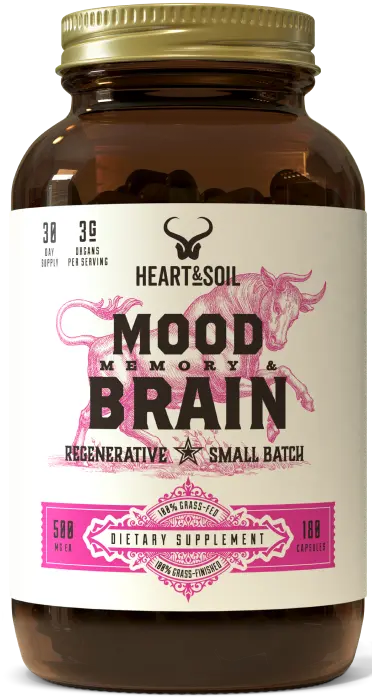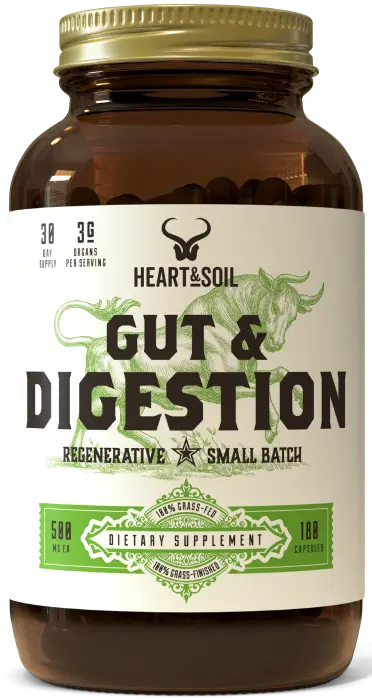PLEASE NOTE: The information in this blog is for educational purposes only. It is not a substitute for professional medical advice. Consult your healthcare provider if you’re seeking medical advice, diagnoses, or treatment.
Walking through the aisles of your favorite grocery store can feel like a battle. On one hand, everything is pricey, while on the other, there are endless unhealthy and low-cost temptations.
Most people with a sweet tooth fall victim to the temptation of a sugary treat. This article is all about how to stop sugar cravings in their tracks, the dangers of processed sugar, natural alternatives to consider, and why all sugar is not bad for you (yes, you read that right. More on this later).
Let’s take a look!
Is All Sugar Bad For You?
It’s common in nutrition to pin the blame for a disease or illness on one isolated ingredient or food. We’ve seen this with saturated fat and cardiovascular disease, red meat, and cancer, yet these allegations almost never stick (1).
As we’ll see, excessive sugar consumption is connected to serious health challenges, but it’s still only one of the dozens of factors that lead to the development of these issues. There are also multiple types of sugar to be aware of.
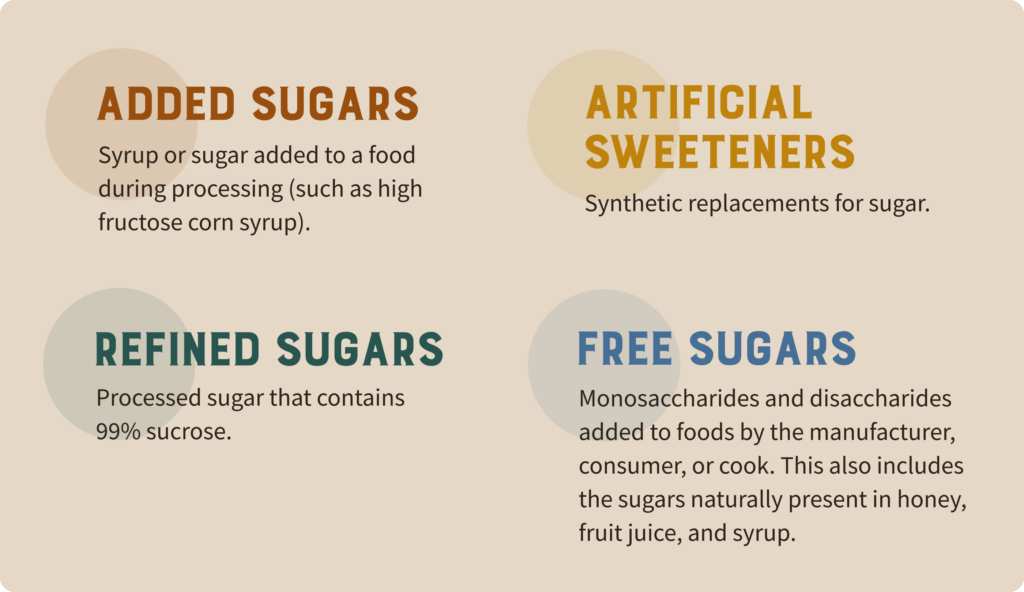
Sugar is a natural component of fruits, vegetables, dairy, and other foods consumed for eons (2). But, the diet landscape for the average individual has changed rapidly away from traditional diets, and towards those rich in grains, refined sugars, and refined vegetable oils (3).
The Emergence of Processed Sugar in the Diet
Added sugars gained popularity in the 1960s, and ultra-processed cakes, soft drinks, fruit drinks, bread, desserts, and cereals are now the main sources of added sugar (4, 5).
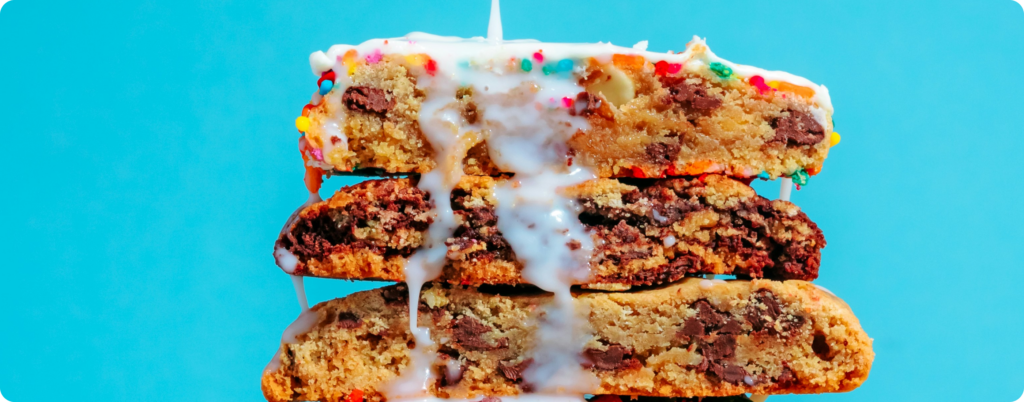
Today, sugar is estimated to be in 75% of packaged foods, and the typical American consumes 66 pounds of sugar yearly (6). That’s 3-6 times the recommended amount of sugar, and almost no studies have shown the positive benefits of added sugar (7). Most of these sweets didn’t exist until the past few decades.
Excessive consumption of added or refined sugars has been connected to (8, 9, 10, 11)
- Obesity
- Cardiovascular disease
- Metabolic syndrome
- Poor oral health
- Type 2 diabetes
Another major problem with added sugars (and foods that contain them) is that they provide little to no nutritional value (12). These foods are then eaten in place of nutrient-dense foods, leading to people who are overfed yet missing critical nutrients.
Natural vs Artificial Sweeteners
Saying that “all sugar is bad or should be avoided” is misleading. There are a variety of naturally occurring sweeteners that contain vitamins, minerals, and phytochemicals (13). Unlike artificial sweeteners, naturally occurring sweeteners are found in nature and are considered higher quality (14).
Before grocery stores, vending machines, and fast food joints, your best bet for finding a sweetener was taking on a hive of protective bees for its honey.
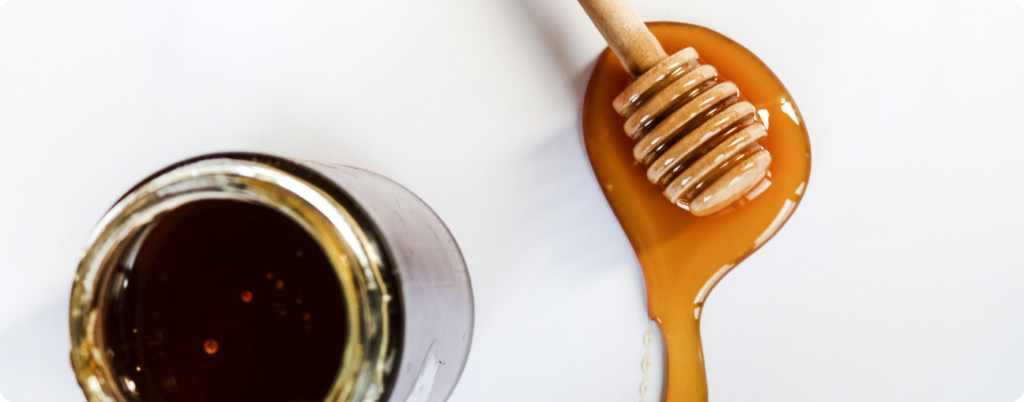
Honey contains over 200 known components such as minerals, organic acids, enzymes, and vitamins (15). It’s shown that it can potentially protect against cancers, diabetes, and cardiovascular diseases, heal wounds, and even help reduce body weight (16).
Similarly, maple syrup is a strong source of polyphenols and minerals and can help reduce liver inflammation and insulin resistance (17).
Studies have shown that long-term artificial sweetener consumption increases the risk of weight gain and its consequences, such as type 2 diabetes and high blood pressure (18).
How to Stop Sugar Cravings in 6 Simple Steps
Discipline and self-control are needed to kick an excessive sugar habit, but it’s important to be aware that there are some potential bumps in the road.
In some ways, the human brain is still hardwired to prepare for starvation by eating more when there’s abundant food (19). In countries like the US, processed and sugary food is everywhere (20). For most people, this constant bombardment starts from a young age.
The foods you were given as a baby and as a child can have a lasting impact on your food choices, as can advertising (21). Marketing of sugary and fatty foods to children can negatively impact their consumption of these foods (22).
Despite these challenges, there are still effective ways to overcome cravings for a sweet treat:
1. Ensure that you’re eating enough
Having a well-balanced diet of nutrient-dense foods is extremely important. Protein, in particular, is powerful for appetite control and fighting off hunger (23). If you find yourself craving sugar, turn to fruit instead of processed junk for a healthier choice (24).
We offer these macronutrient ranges as a general place to begin experimenting with what works best for you:
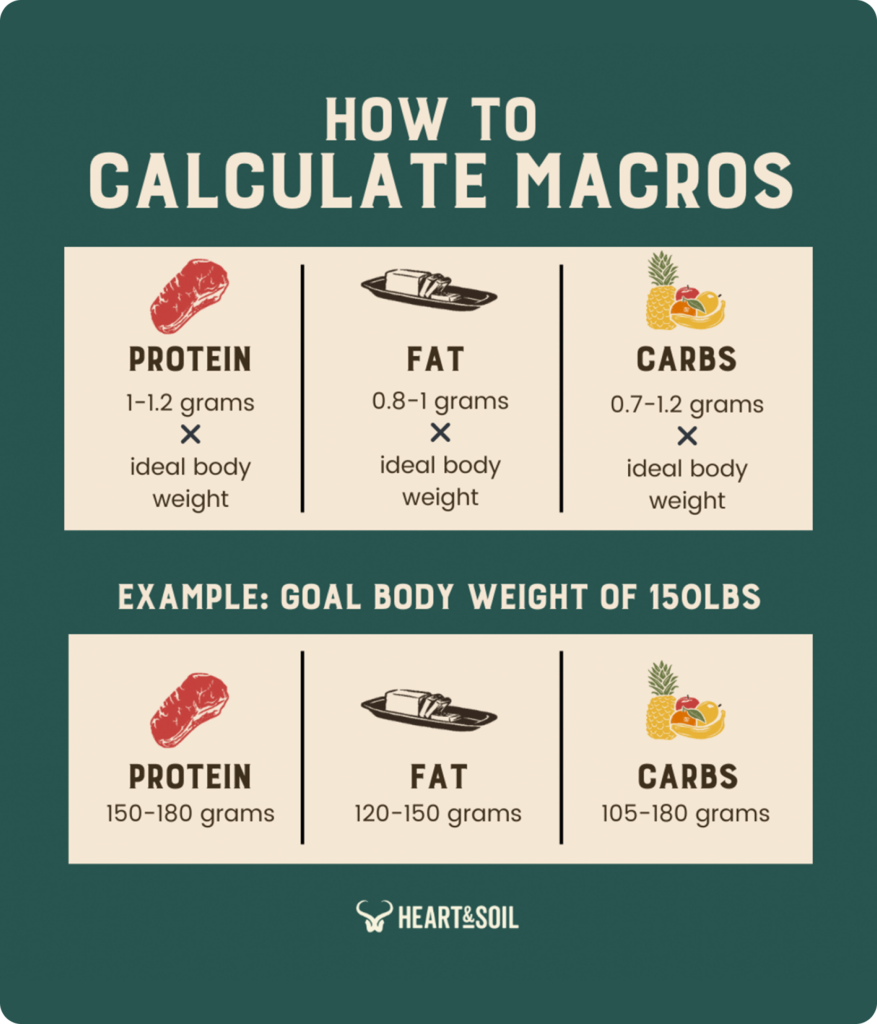
2. Prioritize sleep
Sleep is one of the most impactful health habits, and it’s known to influence eating habits. Despite its importance, an estimated 30% of adults in the US get less than 6 hours of sleep each night (25).
A night of minimal sleep can increase the desire for sugary or fatty foods (26). Tiredness may even promote overconsumption of unhealthy foods (27).
Getting outside during the day, monitoring caffeine intake, and ditching your devices at night can improve sleep and help stop sugar cravings.
3. Manage stress
For some people, long-term stress appears to be connected with a loss in appetite, while others turn towards sugary foods (28, 29).

Stress management looks different for everyone, but spending time in nature, meditating, exercising, or getting away from electronics can all be helpful options.
Mood, Memory & Brain
Calm & Clarity with Grass-Fed Organs
4. Take care of your relationships
Your relationships and social life can impact your dietary habits. Reaching for a sugary snack can offer comfort during tough times.
A study on 93 healthy women showed that social isolation is associated with motivation towards external food cues and weakened executive control (30).

Loneliness has been determined as a factor for cravings for sugar-sweetened beverages such as soda (31). Having a tight-knit friend group, marriage, and feeling connected at work are associated with less intake of sugar-sweetened beverages (32).
So, creating and maintaining meaningful relationships with family, friends, coworkers, and loved ones can be another way to attack sugar cravings and improve overall health.
5. Choose a healthy snack
If you feel the need to snack during the day, go with options that won’t leave you feeling hungrier. These will contain protein and healthy fat sources. Try beef sticks, hard-boiled eggs, a protein smoothie, or greek yogurt with fresh fruit.
6. Address the root causes
It could be worth working with a professional if you’re already consistent with your diet and lifestyle but are still experiencing excessive sugar intake and cravings.
Providers can run urine or stool tests to investigate potential root causes such as candida, parasites, or other challenges.
If needed, check out the Society of Metabolic Health Practitioners, where you can find physicians from all around the globe who understand the value of making animal foods the center of the diet.
Another popular option is IFM Find a Practitioner for a functional medicine approach.
Nourish Your Gut
Grass-Fed Organs for Digestive Wellness
Win the Battle Against Processed Junk
Sugar is not inherently bad for you. Issues start to pop up when shortcuts are taken, and cheaper alternatives like processed sugars are chosen instead of natural sugar.
Natural sweeteners like honey and maple syrup are powerful and nutrient-dense, while artificial sweeteners and added sugars primarily benefit the companies selling them.
Cutting out processed sugar and other processed foods can feel like a losing battle, but there’s hope. A nutrient-dense diet, proper sleep, and stress reduction can all make intense sugar craving a thing of the past!
Subscribe to future articles like this:
